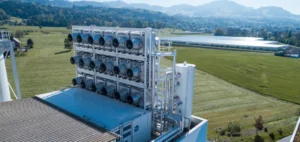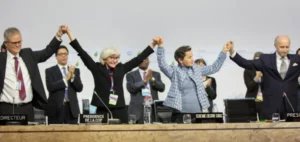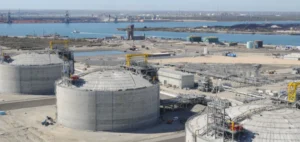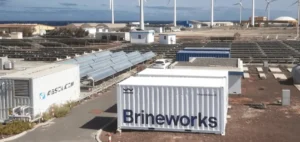The agreement finalized at COP29 in Baku, Azerbaijan, on November 23, lays the foundation for international carbon credit trading under Article 6 of the Paris Agreement. This article, often seen as complex, governs essential mechanisms for a more transparent and reliable carbon market, according to experts.
The mechanism introduced by Article 6.4, under the aegis of the United Nations, provides a global framework enabling companies to generate and trade carbon credits from emission reduction projects. This system relies on proven methodologies for Monitoring, Reporting, and Verification (MRV). Mandy Rambharos, CEO of the Verra carbon registry, hailed this progress as a historic step in global climate cooperation.
A Step Toward Transparency and Accountability
Negotiations refined rules surrounding Article 6.2, which establishes common principles for national greenhouse gas accounting. This mechanism authorizes cross-border credit exchanges, known as Internationally Transferred Mitigation Outcomes (ITMO). Negotiators also defined processes for authorization and revocation, considered critical to maintaining the system’s integrity.
According to an expert involved in the discussions, the ability to identify and resolve inconsistencies will be key to effectively using carbon credits. While the established framework remains improvable, it provides a solid foundation to rebuild trust in a market long criticized for its opacity.
Challenges and Opportunities for Carbon Markets
The implementation of these new rules comes at a challenging time for the voluntary carbon market. In recent years, criticism regarding project quality and a drop in carbon credit prices have impacted the sector’s credibility. However, the adoption of Article 6 sparks hope for revival. Planned integrity initiatives could attract more investments, particularly in developing countries.
Carbon credit prices, such as those tracked by the Platts Nature-based Avoidance Index, have shown signs of recovery after historic lows. This index, which evaluates credits from projects like REDD+, was $4.35/tCO2e on November 22, up from a February low of $2.70/tCO2e.
Mixed Views on Future Impact
Despite progress, some observers remain skeptical. Carbon Market Watch, a nonprofit specializing in climate policy, warned against risks of malpractice. The organization believes the adopted rules could encourage lax practices in the short term while posing challenges for effective regulation.
Conversely, market players like BeZero Carbon see this agreement as an opportunity to mobilize billions of dollars to fund the global energy transition, with positive impacts for less-developed countries.






















